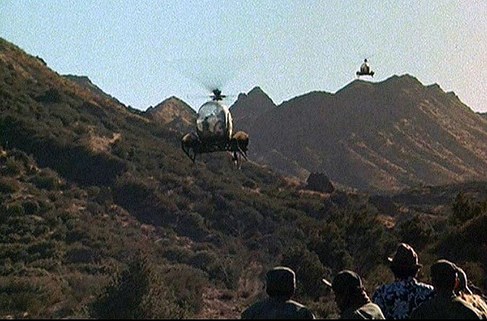So, about my last column urging everyone to try to get out to local government meetings during budget debates. Don’t do that anymore.
As SCRD infrastructure committee chair Donna McMahon said in calling the first meeting of the social distance era to order, “Thank you for, in most cases, not being here.”
As well as watching local government meetings online and gaining fresh insight into the home office décor of our elected officials, a lot of us stuck at home right now have been falling back on familiar rituals to keep a sense of normalcy.
For example, every year about this time I make a point of rereading Richard Hooker’s novel MASH, an outstanding book that spawned a very good movie and a not too bad TV series. And I figured during my self-isolation I’d pick it up again.
Chapter 9 is devoted to a two-week stretch during which the titular U.S. Army hospital is experiencing what the characters refer to as the Great Deluge, a non-stop stream of casualties marked by the phenomenon they knew as the “six o’clock chopper.”
“The six o’clock chopper, either morning or evening, was always unwelcome because the very fact that the pilot was risking the trip in half-daylight meant that the soldiers lying in the pods were seriously wounded… During the time of the Great Deluge, they would hear not one six o’clock chopper but three or four,” Hooker wrote.
I’ll pick up near the end of the chapter where we find the main characters, Henry Blake, Hawkeye Pierce, Trapper John McIntyre and Duke Forrest, standing outside the post-op ward.
“They had ostensibly stepped out for a smoke, but each knew that they were all there to post a watch to the north and hope against hope against the appearance of the six o’clock choppers.”
I’ve been thinking about that scene at lot – minus the smoking – when I try to imagine what our health care workers must be going through right now.
For us journalists, waiting for provincial health officer Dr. Bonnie Henry to present the case numbers every day is our new collective version of hoping against hope that we won’t hear the six o’clock chopper.
So far, unlike in the novel, the choppers still seem to be coming. Our Great Deluge seems fated to last much longer than two weeks.
We’re also facing another deluge.
It seems everyone in public life feels they need to say something, to offer some message, some advice or some reassurance. It makes for a lot of noise to sort out from the signal.
Recently, Darrel Bricker, CEO Ipsos Public Affairs, had this to say on Twitter: “Public communicators,” Bricker tweeted. “[The] need is for information not communications. Put away spin lines, cotton candy rhetoric [and] slogans. If you’re not providing information people can use today you’re cluttering up the airwaves. Leave them clear for somebody who has something useful to say.”
As Dr. Bonnie Henry said, although I honestly can’t remember at which of her many, many briefings she said it, this is a marathon, not a sprint.
And that’s an important a message for those of us who want to give you what you need to know without adding unnecessarily to the Great Deluge.



